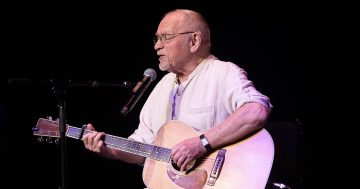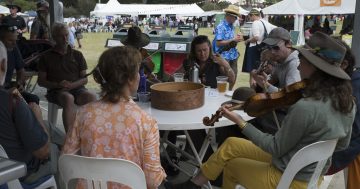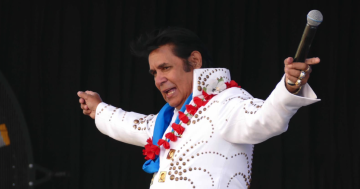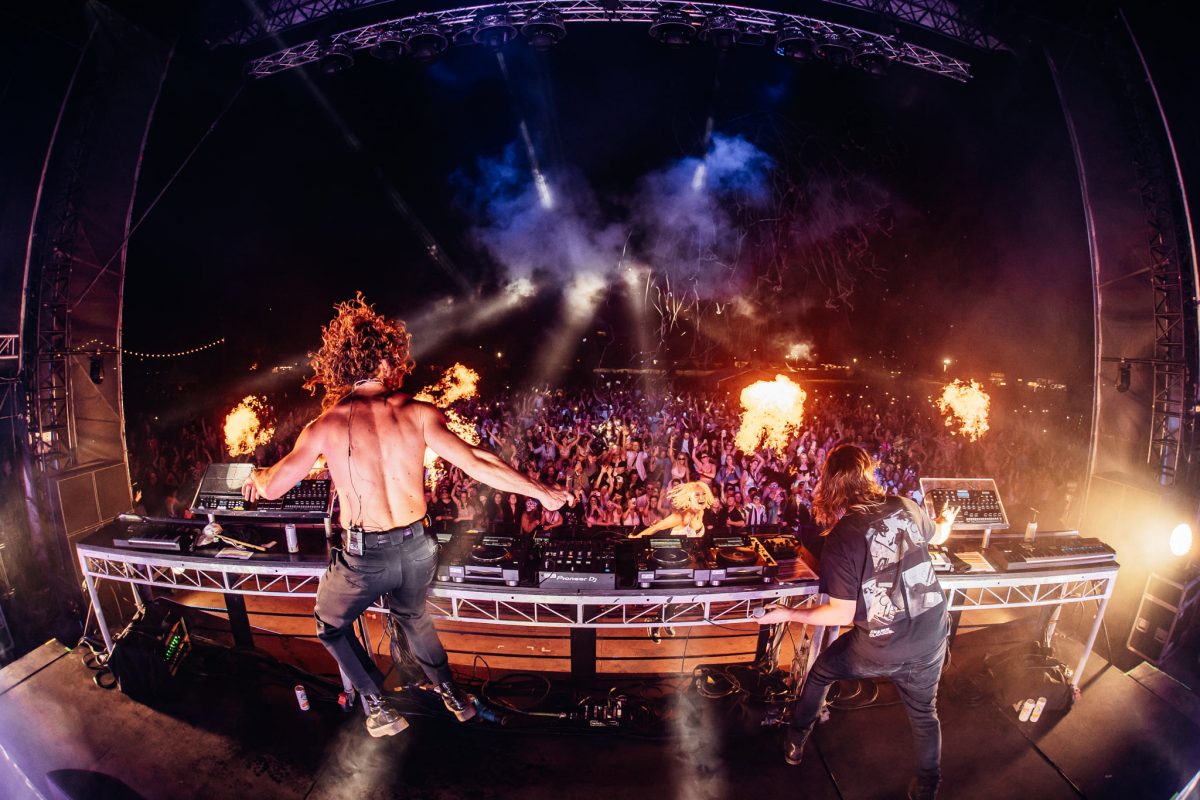
Groovin the Moo returned to Canberra in 2022 – but how long will music festivals be a feature on Australia’s cultural calendar? Photo: Jordan Munns, Groovin the Moo Facebook.
It was a rite of passage for many of us – trekking out to a campground somewhere to sleep in tents, not shower for up to three days and immerse ourselves in live music. The Aussie music festival has held a special place in my heart since I was a teen, and some of my core memories of coming of age took place at the greats – Splendour, Big Day Out, Falls, Laneway, not to mention long-defunct festivals like Homebake.
When the Splendour in the Grass organisers called it quits on the 2024 festival, millennials like myself were sent into a tailspin of nostalgia.
Splendour is only the latest of several festivals to either postpone or announce diminished ticket sales in the last few years. While many are scratching their heads trying to understand what has changed, the answer might be more straightforward than we think.
So far, the changed events landscape post-COVID, the cost-of-living crisis and the lineups have all been blamed for slow ticket sales and the ultimate decision to cancel the festival. Undoubtedly, all of these issues are contributing factors. It’s absolutely true that the way we spend our money and our time has shifted since COVID, and everyone is feeling the financial pinch right now, too.
With a lineup including Arcade Fire and Kylie Minogue, Splendour was appealing to a millennial audience of my age. The fatal flaw is that most of us in our mid-30s are not likely to head out for three-day festivals anymore.
Even if I had the energy and didn’t have a small child to care for, my 34-year-old back wouldn’t hack sleeping on the ground and dancing for multiple days straight. I’ll stick to individual gigs spread out by several months at a time, thanks.
However, the reality is that beyond these circumstantial factors, the younger generations may not want to attend festivals in the traditional format. So much of their social engagement occurs online, changing how young people prioritise events and activities.
I know that the young people in my life are far more likely to spend a lot on a single gig with a big-name performer than spend the same amount to discover new music across multiple days, where there may only be one or two internationally renowned headliners. It’s not just about the live experience – it’s about the content created from the event for later publishing.
I honestly think that one of the reasons we were so overloaded with Taylor Swift content while she was in Australia in February is that the experience of the concert went beyond the actual night itself for so many attendees.
Months of social media content was developed about the outfits people were wearing, predicting the special songs that would make the setlist, etc, and content continues to flow now post-concert.
In contrast, Aussie music festivals are very much about being in the moment, at least in my experience from the past decade.
A lot of the joy of festivals for me was going to the smaller stages and discovering artists I had never heard of. The crowds at the main stages would be so intense, there was no way we would be getting our phones out (not that we had anywhere to post content anyway), and the memories we made were to be shared between just us – no wider audience was ever in mind. To be able to offer the sort of experience younger people might be expecting, the structure and format of festivals may have to shift, with music being only one part of the focus and the broader experience becoming more ‘Instagrammable’.
It may also just be that we’re witnessing a turning point in our culture, where the music festival as we know it is being edged out by digital entertainment, and the nature of live music will shift alongside it. I would be lying if I said it doesn’t make me sad.
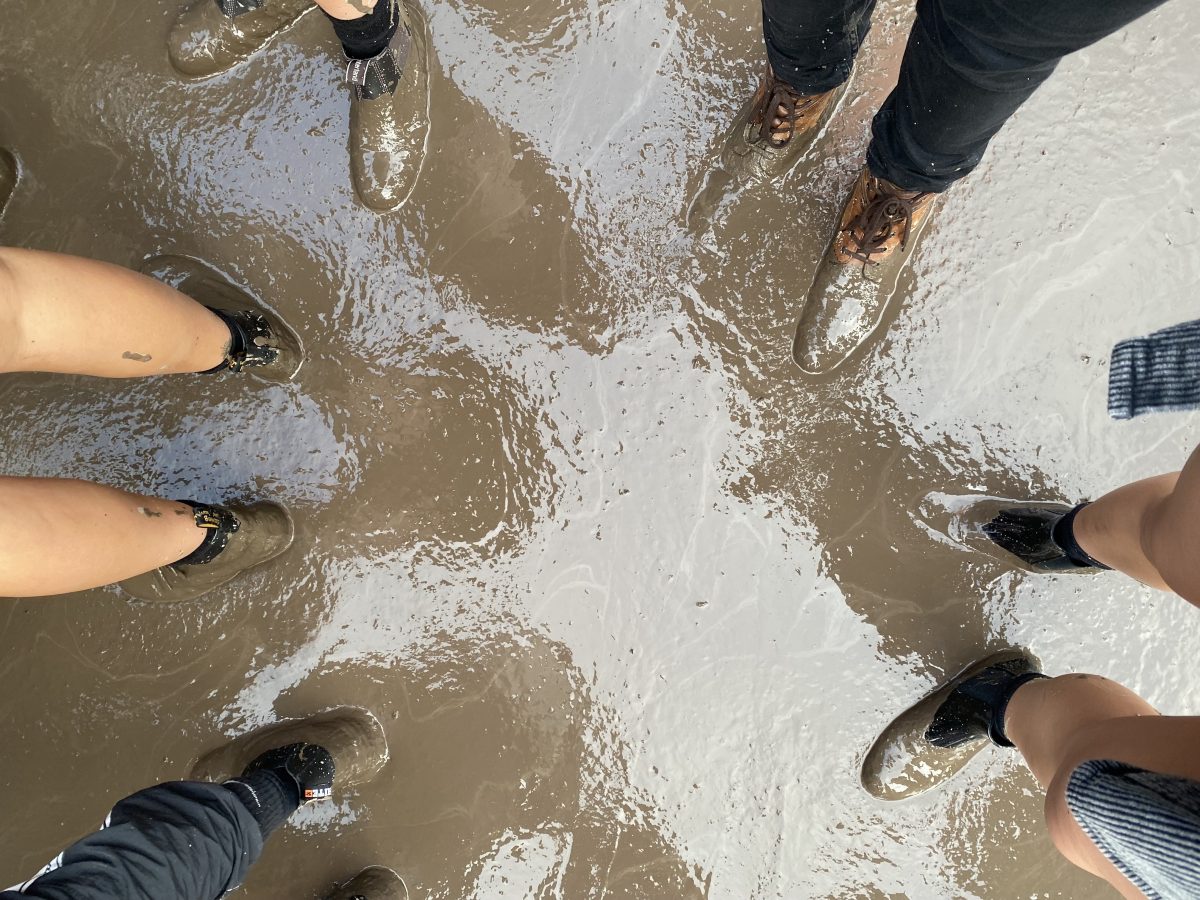
Is it really a music festival if your shoes aren’t wrecked? Photo: Region.
As I write this, my three-month-old son is sleeping in my arms, and I wonder what his core music experiences will be when the time comes. I wonder what he’ll think when I regale him with stories of the festivals I attended, where the bathrooms were so gross we all avoided the shower until the stench in our tent got too bad, or how his father and I spent our first New Year’s Eve as a couple at Falls Festival listening to the Arctic Monkeys in the blistering heat and drank smoothies the next day from a stall that powered its blenders using a guy on a bicycle to generate the electricity. How I discovered the music I still listen to now by stumbling into a tent at 2 pm on the second day of a three-day festival, too tired to do anything other than park myself on the ground and listen to whatever acts took the stage for the next few hours.
He’ll probably take off his AI goggles for two seconds to roll his eyes and say, “Cool story, Mum”, before plugging back into whatever global event he’s virtually attending.
This is how the past becomes stories for the future – our festivals may be slowly waning into their twilight years, but the memories will live on.
Original Article published by Zoya Patel on Riotact.






